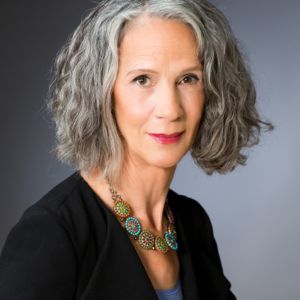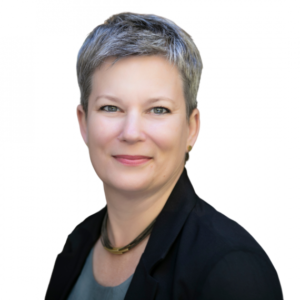Today we’re back with part two of Lessons from Leaders, featuring our CEO Dr. Christine Sow. In this episode, Dr. Sow discusses her leadership style and shares advice she would give to aspiring leaders. She also delves into what it truly means to bring your authentic self to the table and highlights the importance of being flexible and agile. Don’t forget to watch part one of this interview with Lynne Gilliland!
Below is an abridged excerpt from the episode—watch the full video below.
Lynne Gilliland: It seems like one of the things that’s coming out of the COVID situation is, rethinking not only how we work, but who does what and how do we communicate?
Dr. Christine Sow: We have the advantage of already being a fully distributed workforce. We’ve been virtual for about three years, so this was not new to us, but we did have to really deliberately stop at the beginning of the pandemic and say, is the way that we have been working going to work for us going through this. And, our staff are distributed across eight countries and many times zones. We had to think about all of the things that we’re now seeing different companies and organizations adopt. We have to have flexible working hours. We need to check in with everybody and see if they’ve got the childcare arrangements that they need, and can they work given what their responsibilities are with kids at home?
We instituted having twice weekly informal staff check-in with our head of HR. She was there, and people could check in, but we really want it to have a way to be taking people’s pulses. We went along to see how they were doing and making sure that we were meeting their needs. Thankfully I would say for our staff, this has been fairly uneventful for them. We’ve been able to keep all of our staff on, people have been in good health and as I said, we were already virtual. I think being able to offer that kind of stability has helped, but we really have had to think through how we work.
Lynne Gilliland: What have you discovered about your own leadership style?
Dr. Christine Sow: Some of it is just learning more about Humentum. I’m learning more about being a leader within this particular organization, but I have had to work to make sure that people know that I’m accessible. I’ve had to work harder at making clear my position on things, and how we’re working, deliberately emphasizing our key messaging. Part of that is just adapting to working in a fully distributed workforce virtual workforce.
I have to say one of my attributes coming into this job, and coming into this crisis, was that I am a very flexible leader. I jokingly say that’s because I spent 15 years working in West Africa where you’re never sure if the electricity is going to be on, and you’re working in really challenging conditions a lot of the time. And so you have to be adaptable. For me, this particular situation meant that that was a really good competency to have coming into it. And there are other things that I wish I’d had more of and I guess that’s part of it.
Lynne Gilliland: What advice would you give your younger self or what do you wish that you had known then?
Dr. Christine Sow: The hard competency is learning about accounting, learning about profit and loss, learning about margins. If you want to go into senior management and leadership, you really have to have a solid financial head on your shoulders. I have had to learn that as I’ve gone, and I have been lucky because I’ve had a few people who have gone out of their way to give me the time that I needed to ask them all the different questions. It has been an area where I have always felt like I was kind of running to keep up and now I feel like I’m doing okay. We’ve got a fantastic CFO, so I work with her very closely, so that helps.
The soft skill is don’t sweat the small things. I feel passionate about lots of things, and I think my younger self had a very hard time differentiating between how much I should get passionate about the small things that didn’t matter a whole lot. I had no range. I would just get completely bent out of shape, passionate, angry, whatever you want to call it—no matter what it was. I really held on to that passion and to that anger, but I also have learned how to manage that a lot better and to prioritize what really needs my energy and what doesn’t.
Lynne Gilliland: When you look at young leaders today or aspiring leaders today, what advice would you give them?
Dr. Christine Sow: Really work on your capacity to be flexible and agile—don’t fix on, I am going to have this absolutely linear trajectory that is always going up to the next step. I think a lot of the most potent learning moments I’ve had are from [non] linear moves. Some of the things that I just never expected to get into that for whatever reason I did, and then I learned an awful lot from them. Sometimes those have been really difficult, situations that part of me wishes I never had to have gone through. And on the other hand, I get value out of them now because I look at what I learned from them and how they toughened me up—kind of battle scars. But also, things that I learned that I can channel into the way that I’m being a leader now.
Lynne Gilliland: Is there anything that you would say to people leading right now?
Dr. Christine Sow: It’s not all about you. It’s not even about you. I believe in being an outspoken leader and being out in front and being seen and everything else that a leader probably likes to be. But at the same time, remember that you are serving others and especially in the global development sector. We’re serving all of the populations in communities with whom we work. You’re serving your staff, you’re serving your stakeholders and you need to be ready to sit and listen, and either be humble, or be told to be humble. Sometimes you don’t get it right. Sometimes you mess up. You’re also a human being, so that’s normal.
I think one of the most surprising things that’s happened to me since the pandemic started has been that I was always taught that a CEO is out in front and has a poker face and doesn’t show their emotions and that’s how you lead. And especially if you’re a woman, you can’t afford to show emotion because if you do, then people will think you’re weak or that you’re just being a woman.
When the pandemic started in earnest, we had our first all staff meeting and I cried in front of my staff because when I cry, I cry. I remember doing that and thinking, are they going to think less of me? Have I just broken all the rules of being a good CEO? And what does this mean? Especially because I’m new and still establishing who I am. I had several staff members reach out to me afterwards and say thank you, you brought your authentic self. We all want to cry and seeing you cry helped us know that it’s okay for us to cry. I was like, wow, I can do this. And it was OK. And I wasn’t expecting that. I think it caused me to really think about who am I authentically—what does that actually mean? I think it’s also showing your vulnerability.


